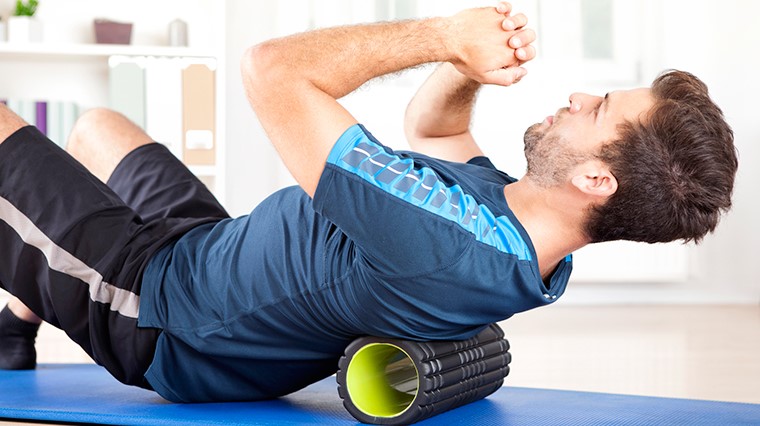6 Ways To Speed Up Your Post-Run Recovery

Are sore, fatigued muscles holding you back?
Post-run recovery is an essential part of every runner's training plan to replenish and repair. So as much as you’d love to sink into a beanbag for a Netflix binge immediately after your run, consider these 6 tips to speed up recovery, be kind to your body and break away from the pack.
Cooldown
Resist the temptation to turn into a couch potato. Instead, perform easy jogging, walking or a combination of both for at least 10 minutes after your run to allow your body to adjust back into its pre-workout state.
Cooldown phases are essential to gradually lower your heart and breathing rates, decrease your temperature and provide optimal blood flow to eliminate metabolic waste (lactic acid) from your body, thereby reducing risk of cramping.
Rehydrate

Drinking water is a priority post-run to replace fluids lost in sweat and to lubricate your exhausted muscles. As awesome as your body is, it needs upkeep and hydration is at the forefront of that.
For runs longer than 30 minutes, trade in your water bottle for sports hydration drinks to speed up the absorption of water and replenish electrolytes (including sodium chloride, potassium, magnesium and calcium) for the prevention of nausea and cramps.
Refuel
Reach for a wholesome snack with a 3:1 to 4:1 carbohydrate to protein ratio (about 12-15g protein and 35-50g carbs), within 30 minutes of your run - this is when your muscles are the most geared up to replenish glycogen (glucose stored in your liver and muscle cells).
Proteins are the building blocks for your body to repair and maintain lean muscle mass, whereas carbs are easy to breakdown and restore the glycogen burned during your run. Your body can access these glycogen reserves for energy to fuel your next workout and increase endurance.
Our favourite post-run snacks include sports bars such as Clif energy bars, trail mix, banana or apple with a small amount of peanut or almond butter, low-fat yoghurt and fresh berries, spinach omelet with a side of fruit, hummus and wholewheat pita bread or low-fat chocolate milk - just watch out for the milk moustache!
Replenish Magnesium
Alongside calcium, magnesium is a critical electrolyte that supports healthy muscle function and contraction. However, it is difficult to maintain sufficient levels of magnesium by relying solely on diet, and it’s readily lost in sweat.
Incorporate magnesium supplements into your recovery to speed up the process and avoid the spasms, cramping and muscle twitches that can be a sign of magnesium deficiency.
Tight Muscles? Roll It Out

As much as you'd love having a personal masseur on call to work out tense muscles, it’s certainly worth treating your body to the next best thing with massage and stretch equipment.
Foam rollers can be incorporated into your dynamic stretches pre-run to increase your flexibility - both warming and loosening up muscles to decrease injury risk.
Using them post-run can cut down recovery time, providing a deep tissue massage to assist in myofascial release, to relax, improve blood flow and the transportation of nutrients to fatigued and contracted muscles, and remove lactic acid.
Take A Bath
The benefits of ice baths and Epsom salt baths have been debated wildly in the sports community, and although some athletes swear by an ice bath to ease inflammation, it’s probably overkill unless you’re super keen or happen to be a polar bear.
Adding 1-2 cups of magnesium-rich Epsom salt (technically magnesium sulfate) into a warm bath and taking a nourishing 15 minute soak is thought to alleviate the soreness and pain of muscles.
Light some candles, unwind with your favourite tunes, splash around with your rubber ducky and let the stress melt away while you rejuvenate your mind and body.
